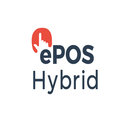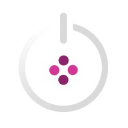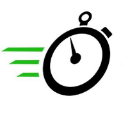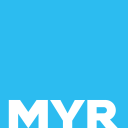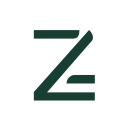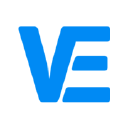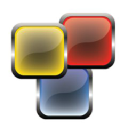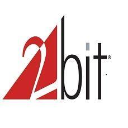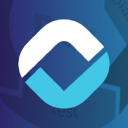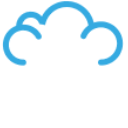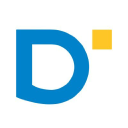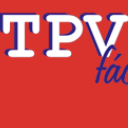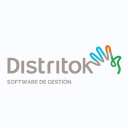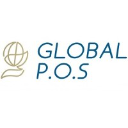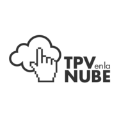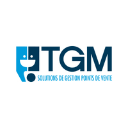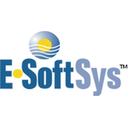Point of Sale (POS) software: purchase guide
POS Software Buying Guide 2025: Optimize Sales, Inventory, and Customer Experience
Point of Sale (POS) software is no longer just a digital cash register—it’s a central tool for managing transactions, inventory, customer relationships, and business performance. From small retail shops to multi-location restaurant chains and online businesses, a well-chosen POS system helps streamline operations and improve service delivery.
Modern customers expect fast checkout, multiple payment options, and a seamless buying experience. Businesses that still rely on manual registers or disconnected tools risk inefficiency, customer frustration, and lost revenue. This guide provides a detailed breakdown of what POS software can do, the core features to look for, practical implementation tips, and a comparison of top tools for 2025.
What are the main features of POS software?
Centralized sales and transaction processing
POS software consolidates product selection, payment handling, and transaction records into a single system—whether online, in-store, or mobile.
Scan products via barcode or manual entry
Accept a wide range of payment types: cards, mobile wallets, contactless, or buy now/pay later (BNPL)
Generate digital or printed receipts and update sales logs in real time
Example: A retail store uses a mobile POS at checkout counters and pop-up events, ensuring all transactions are recorded in the same system.
Real-time inventory management
Most POS systems include built-in inventory tracking that syncs automatically after each sale to help avoid stockouts or overstock.
Update stock levels instantly with each transaction
Set automatic alerts for low stock or reorder points
Sync inventory across multiple store locations
Example: A coffee shop chain uses its POS to manage perishable stock levels at each outlet, reducing waste and preventing shortages.
Customer relationship management (CRM)
A POS system can store customer purchase history, contact info, and preferences to support personalized marketing and loyalty programs.
Build customer profiles and track lifetime value
Offer rewards points, store credit, or promotions tied to buying behavior
Enable email and SMS integrations for follow-up campaigns
Example: A boutique tracks frequent buyers and automatically sends exclusive promotions to VIP customers through CRM integration.
Employee and user management
POS tools help manage staff performance and security by assigning different access levels and tracking key activity metrics.
Clock-in/clock-out tracking for payroll and scheduling
Role-based permissions to restrict sensitive actions
Sales performance reporting per employee or shift
Example: A restaurant owner uses the POS system to track which servers generate the most upsells and optimize team scheduling accordingly.
Cloud-based and mobile access
Cloud POS systems enable business owners to manage their operations from anywhere—on desktop, tablet, or smartphone.
Monitor sales in real time from multiple locations
Access reports and dashboards remotely
Sync data across devices and store branches
Example: A manager reviews live sales data from multiple retail locations during a trade show via the POS mobile app.
Omnichannel and integration capabilities
Modern POS platforms support cross-channel selling and connect to accounting, e-commerce, and marketing systems.
Sync with online storefronts and marketplaces
Integrate with QuickBooks, Xero, Shopify, Mailchimp, and others
Provide a unified view of online and offline performance
Example: A clothing store manages in-store and online inventory through one POS, ensuring accurate stock visibility across channels.
Security and compliance
POS software protects sensitive customer and financial data through encrypted transactions and user authentication protocols.
PCI-compliant payment processing
Secure login with role-based access controls
Activity logs for audits and compliance checks
Example: A business accepts contactless payments and stores encrypted payment data, helping meet industry standards for data protection.
Comparison of POS Software Tools
| Software |
Key Features |
Strengths |
Limitations |
Pricing |
| Square POS |
Intuitive interface, mobile POS, inventory tracking, CRM |
Easy to use, no fixed monthly fees |
Transaction fees apply |
Free, pay-per-use |
| Toast POS |
Restaurant-focused, order & inventory management, staff tools |
Built for hospitality, great support resources |
Best suited for food businesses |
On request |
| TouchBistro |
Menu management, table layout, staff scheduling, reporting |
Designed for restaurants, offline access |
Limited for non-hospitality use |
On request |
| IncoPOS |
Inventory, sales reporting, multi-device support |
User-friendly, fast setup |
Interface less modern |
On request |
| KCPoS |
Retail inventory and sales management, customizable reports |
Modular, scalable for growing businesses |
No public reviews yet |
On request |
Applicability and implementation considerations
POS software is suitable for a wide range of industries, including retail, hospitality, food services, and online commerce. The ideal tool depends on operational complexity, sales volume, and customer interaction style.
When POS software is most applicable:
Retail stores managing large inventories across multiple locations
Restaurants and cafés needing table, menu, and tip management
Online sellers integrating physical checkout with e-commerce systems
Pop-up shops and mobile vendors requiring mobile payment and inventory sync
Steps to implement a POS system successfully:
Define your requirements based on your business model
Identify systems you need to integrate (accounting, CRM, payments)
Choose a solution compatible with your hardware and payment providers
Run a test using free trials or demo environments
Train all staff on day-to-day usage and troubleshooting
Use reporting tools to monitor effectiveness and improve workflows
Integration tips:
Opt for cloud-based tools for remote access and real-time updates
Ensure compatibility with tools like Shopify, PayPal, or Stripe
Choose platforms with API support if you need custom workflows
Why choose a POS system?
Businesses adopt POS software not just to process payments, but to run smoother operations, make better decisions, and improve customer satisfaction. A well-implemented POS system serves as the operational backbone for retail and hospitality businesses, unifying sales, inventory, customer data, and performance tracking in a single platform.
Speed and accuracy
Automated transaction processes reduce the risk of human error and minimize wait times at checkout. Scanning barcodes or using integrated product catalogs makes checkout faster and more reliable, especially during peak hours or high-volume sales periods.
Inventory visibility
Real-time inventory tracking allows businesses to maintain optimal stock levels and avoid common issues like stockouts or deadstock. Managers can see what's selling, which locations need restocking, and when to reorder—all from a centralized dashboard.
Customer experience
Modern POS systems support loyalty programs, digital receipts, personalized discounts, and multiple payment options—including mobile wallets and BNPL (Buy Now, Pay Later). These features create a smoother, more engaging experience that encourages repeat business.
Scalability
As businesses grow, their POS system should grow with them. The best solutions support multi-location management, allow the addition of new product lines, and integrate with e-commerce platforms to support omnichannel strategies. This flexibility ensures consistent performance from startup phase to expansion.
Insights and reporting
Built-in analytics tools help owners and managers understand key metrics like top-selling products, sales by employee, peak hours, and conversion rates. These insights guide decisions around staffing, marketing, and product purchasing.
Operational control
A POS system gives business owners greater control over every aspect of daily operations—from employee permissions and shift tracking to transaction audits and return management. This leads to fewer bottlenecks and more consistency across locations.
Regulatory compliance
Many modern POS platforms offer tax configuration tools, invoice archiving, and GDPR-compliant customer data handling, helping businesses stay on top of legal and fiscal requirements without extra tools or paperwork.
Key trends shaping POS software in 2025
The POS industry is evolving rapidly, with innovations aimed at improving security, personalization, and operational efficiency. Here are the trends likely to have the greatest impact in 2025 and beyond:
AI-powered dynamic pricing
Artificial intelligence is being used to automatically adjust product pricing in real time based on customer demand, inventory levels, historical sales, and competitor pricing. Retailers can optimize margins and clear out slow-moving inventory more effectively.
Biometric and voice payments
Biometric authentication (such as fingerprint or facial recognition) and voice-assisted transactions are being integrated into POS systems to enable faster and more secure checkouts. These features are especially useful in high-volume environments or for self-service kiosks.
Blockchain-based receipts and transaction logging
Blockchain is emerging as a secure way to log and verify transactions, particularly for industries where fraud prevention and data integrity are critical. POS systems using blockchain can offer immutable records of sales, returns, and customer activity.
Augmented reality (AR) for in-store shopping
AR capabilities are being introduced into POS ecosystems, allowing customers to visualize products in 3D before buying—especially useful in furniture, fashion, or cosmetics. POS systems that integrate AR can enhance upselling and reduce return rates.
Tighter e-commerce and delivery app integration
As hybrid selling models become the norm, POS systems are increasingly integrating with e-commerce platforms, local delivery services, and click-and-collect apps. This allows businesses to manage inventory, sales, and customer engagement across all channels in real time.
Contactless and automated checkout
Driven by hygiene concerns and efficiency goals, contactless and self-checkout options are becoming standard. POS systems now often include support for QR code payments, RFID tagging, and unattended kiosks.
Green and paperless operations
Sustainability is influencing POS development, with more systems supporting digital receipts, low-energy hardware, and integration with carbon tracking tools. Businesses can use these features to reduce environmental impact and meet consumer expectations for eco-conscious operations.
Conclusion
A modern POS system does much more than register payments—it connects inventory, customers, and reporting into one streamlined platform. The right software will help businesses operate faster, smarter, and more efficiently.
For small businesses, Square POS offers simplicity and flexibility with no monthly fees. Restaurants can benefit from Toast POS and TouchBistro, both tailored to hospitality needs. Retailers looking for scalability can explore IncoPOS and KCPoS as adaptable options.
Test the options, explore free trials, and consider integration needs before choosing. The right POS system will be a long-term asset to your business operations, improving day-to-day efficiency while preparing you for the future of commerce.
